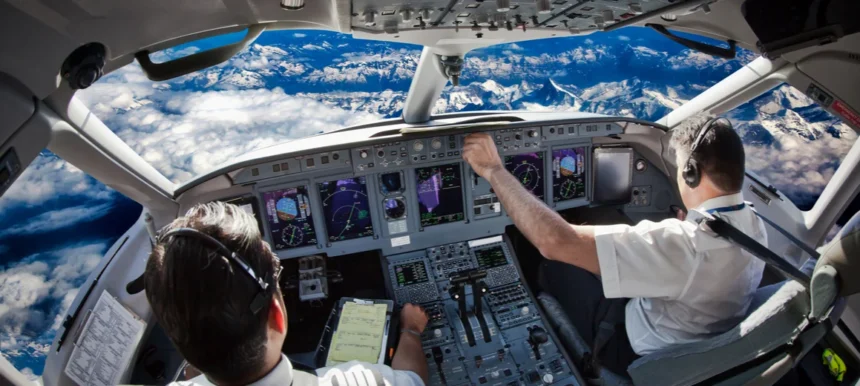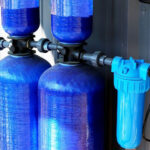Aircraft maintenance extends far beyond the glamorous world of piloting and flight operations. While the cockpit commands attention with its sophisticated instrumentation and control systems, the real backbone of aviation safety? That lies in meticulous care and maintenance protocols that most passengers never see. Every commercial airliner, private jet, and small aircraft depends on a comprehensive care regimen, one that ensures optimal performance, passenger safety, and strict regulatory compliance.
The aviation industry operates under some of the most demanding maintenance standards in any field, and there’s a good reason for that. Proper aircraft care directly correlates with flight safety and operational efficiency. It’s not just about meeting regulations; it’s about creating a culture where excellence in maintenance becomes second nature. Professional aviation maintenance encompasses everything from routine inspections to specialized treatments of critical systems, all working together to keep aircraft airworthy and reliable.
Critical Systems Requiring Regular Maintenance
Aircraft comprise numerous interconnected systems that demand specialized attention and care throughout their operational lifespan. Think of an aircraft as a symphony of components, each playing its part in perfect harmony. The hydraulic systems control essential flight functions including landing gear deployment, braking mechanisms, and flight control surfaces, making their maintenance absolutely critical for safe operations. Without properly functioning hydraulics, even the most skilled pilot can’t safely operate the aircraft.
Electrical systems power navigation equipment, communication devices, and passenger amenities, requiring constant monitoring and preventive maintenance to avoid in, flight failures. The propulsion systems, whether jet engines or propeller-driven powerplants, undergo rigorous inspection schedules that include detailed component analysis and performance testing. Environmental control systems maintain cabin pressure and temperature, directly impacting passenger comfort and crew effectiveness during flight operations.
Each of these systems relies on specific consumables, fluids, and replacement parts that must meet exacting specifications established by manufacturers and regulatory authorities. The complexity of modern aircraft means that maintenance professionals must possess extensive knowledge across multiple disciplines, from mechanical engineering to electronic systems, ensuring every component functions harmoniously within the larger operational framework. It’s a demanding profession that requires both technical expertise and unwavering attention to detail.
Preventive Maintenance Philosophy in Aviation
The aviation industry has long embraced a preventive maintenance philosophy that prioritizes proactive care over reactive repairs. This approach didn’t emerge by accident; it stems from decades of operational experience demonstrating that systematic preventive measures significantly reduce the likelihood of unexpected failures and costly emergency repairs. Why wait for something to break when you can prevent it from breaking in the first place?
Scheduled maintenance intervals are carefully calculated based on flight hours, calendar time, and operational cycles, ensuring that components receive attention before they approach failure thresholds. Aircraft operators maintain detailed logbooks documenting every maintenance action, creating comprehensive service histories that inform future care decisions and help identify potential issues before they become critical. This meticulous documentation serves multiple purposes, including regulatory compliance, resale value preservation, and operational safety enhancement.
Modern preventive maintenance programs increasingly incorporate predictive technologies such as vibration analysis, oil sampling, and thermal imaging to detect subtle changes that might indicate developing problems. These advanced diagnostic techniques allow maintenance teams to address issues during planned downtime rather than facing unexpected aircraft unavailability that disrupts operations and increases costs significantly. It’s a smarter way to work, one that saves money while simultaneously enhancing safety margins.
Essential Consumables and Their Role in Aircraft Operations
Aircraft operations depend heavily on various consumables that require regular replenishment to maintain system functionality and performance standards. Think of consumables as the lifeblood of aircraft systems, without them, even the most advanced aircraft can’t function properly. Lubricants play a vital role in reducing friction within engines, gearboxes, and mechanical systems, protecting components from excessive wear and heat generation that could lead to premature failure.
Cleaning agents specifically formulated for aviation applications remove contaminants without damaging sensitive surfaces or leaving residues that could affect aerodynamic performance. Sealants and adhesives maintain structural integrity and prevent fluid leaks, particularly critical in pressurized cabin environments where even minor breaches can compromise safety. Filters throughout the aircraft trap contaminants in fuel systems, hydraulic circuits, and air conditioning systems, protecting sensitive components from damage and maintaining system efficiency.
The selection of appropriate consumables requires careful consideration of manufacturer specifications, regulatory requirements, and operational conditions that aircraft encounter during service. Using substandard or incorrect consumables can lead to accelerated component wear, system malfunctions, and potentially catastrophic failures. That’s why quality assurance in consumable selection has become a cornerstone of responsible aircraft maintenance practices, it’s simply too important to get wrong.
Fluid Management and System Integrity
Proper fluid management represents one of the most critical aspects of aircraft maintenance, directly impacting system reliability and operational safety. Hydraulic systems operate under extreme pressures and temperatures, requiring fluids that maintain consistent viscosity across wide temperature ranges while resisting degradation from oxidation and contamination. These aren’t your everyday fluids, they’re specially engineered products designed to perform under the most demanding conditions imaginable.
During routine maintenance operations, professionals who need to service hydraulic systems rely on reliable aircraft hydraulic fluids that meet stringent aviation specifications. Fuel quality management ensures that aviation fuel remains free from water contamination, biological growth, and particulate matter that could damage fuel system components or interrupt fuel flow to engines. Engine oils must withstand tremendous thermal and mechanical stress while providing superior lubrication and cooling properties that protect expensive powerplant components.
Coolants in various aircraft systems maintain appropriate operating temperatures, preventing overheating that could lead to component failure or reduced performance. Regular fluid sampling and analysis provide early warning of system deterioration, allowing maintenance teams to address issues before they escalate into major problems. The proper storage, handling, and disposal of aircraft fluids also require careful attention to environmental regulations and safety protocols, ensuring that maintenance activities protect both personnel and the environment from potential contamination hazards. It’s a comprehensive approach that considers every aspect of fluid management from acquisition to disposal.
Training and Expertise in Aircraft Maintenance
The complexity of modern aircraft demands that maintenance personnel possess exceptional training, certification, and ongoing education to perform their duties effectively. Aviation maintenance technicians undergo rigorous training programs that combine classroom instruction with hands-on experience, preparing them to work on sophisticated aircraft systems safely and competently. It’s not enough to simply understand the theory, these professionals must be able to apply their knowledge in real-world situations where mistakes can have serious consequences.
Regulatory authorities establish strict certification requirements that maintenance personnel must meet before they can perform specific types of work on aircraft, ensuring consistent quality standards across the industry. Continuing education programs keep maintenance professionals current with evolving technologies, new maintenance procedures, and emerging best practices that improve safety and efficiency. Specialized training in areas such as avionics, powerplants, and airframe structures allows technicians to develop deep expertise in specific domains while maintaining broad knowledge of overall aircraft systems.
The investment in human capital through comprehensive training programs pays dividends in improved maintenance quality, reduced errors, and enhanced safety outcomes. Organizations that prioritize maintenance personnel development consistently demonstrate superior operational reliability and safety records compared to those that treat maintenance as merely a cost center rather than a strategic investment in operational excellence. After all, well-trained maintenance professionals represent the first line of defense against potential safety issues, they’re worth every penny invested in their development.
Conclusion
Aircraft maintenance represents a sophisticated discipline that combines engineering knowledge, practical skills, and unwavering attention to detail in service of aviation safety. The essential care that aircraft require extends far beyond what passengers observe, encompassing comprehensive maintenance programs that address every system and component critical to safe flight operations. From hydraulic systems to electrical networks, from consumable management to preventive maintenance protocols, each aspect of aircraft care contributes to the remarkable safety record that modern aviation has achieved.
As aircraft technology continues evolving with more advanced materials, integrated systems, and sophisticated diagnostics, the importance of proper maintenance and care only increases. The next time you board an aircraft, consider the countless hours of maintenance work that have gone into ensuring your safe journey. Aviation’s impressive safety record didn’t happen by chance, it’s the result of dedicated maintenance professionals who take pride in their work and understand that every task they perform, no matter how routine it might seem, contributes to keeping aircraft flying safely and reliably. That commitment to excellence ensures that aviation remains one of the safest forms of transportation available today.


